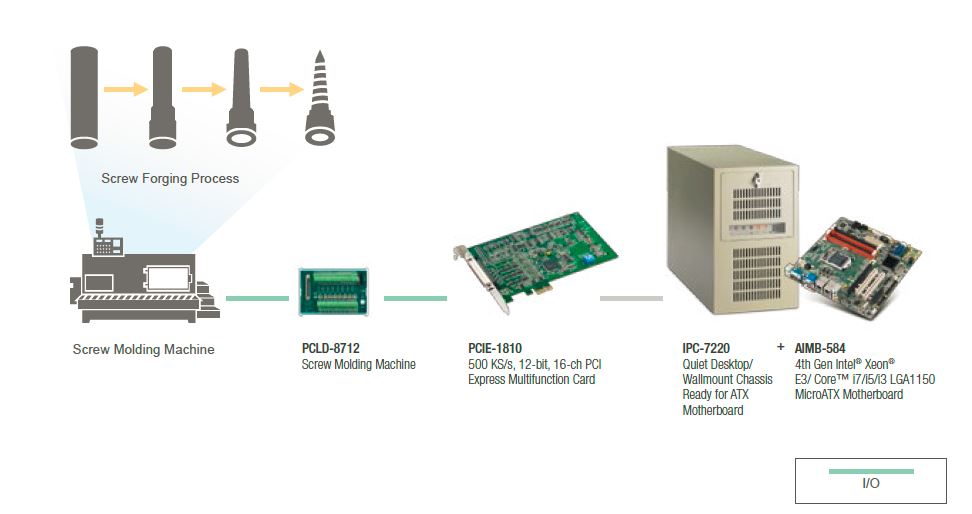
銷(xiāo)售服務(wù)熱線:0551-65152021
技術(shù)服務(wù)熱線:0551-65152031
QQ:2385225698
However, this subjective troubleshooting method is relatively limited, particularly given the noise levels of factories, difficulty in transferring experience other workers, and the unique sounds that different machines make. To rectify this problem, the company invested in predictive maintenance. Initially, they considered purchasing a solution from a major overseas automation vendor.However, because of the high cost, the company sought a local system integrator.
To create an optimal system, sufficient technical expertise in screw forming is imperative. In the process, metal wires are cut and then passed through a cold forging press three times before the screws are formed. Subsequently, the rough cut must go through several operations, including turning, thread rolling, heat treatment, and electroplating before they are completed. The most important step in this procedure is cold forging. Because this process requires up to dozens of tons of pressure to impact the screw die, the die's life span is difficult to estimate. Replacing it too early would be too costly,while delaying its replacement might damage the machine and delay production. Thus, accurately estimating the die's useful life is critical.
The key performance indicator that the company sought to improve by implementing the predictive maintenance system was the availability rate. Following installation of the system, the screw forming machines used by the company can now accurately detect the status of each die, and the likelihood of equipment failure has been significantly reduced.

The screw forming machine is a typical example of an industrial IoT (IIoT) application, which must be constructed on the basis of specialized knowledge about vertical markets. For screw forming machines, because the stamping pressure exerted on the die is extremely high and because screws are produced in large volumes at very high speeds, accurately detecting the die status is inherently difficult, which is why adequate industry experience is essential in deriving the optimal implementation method. Advantech equipped the forging mold with sensors; by continuously analyzing the vibration wave forms to determine the mold’s condition, the entire system was completed in less than 6 months, including design, testing, implementation, and calibration.
For smart factories of the future, IIoT will be the principal framework for manufacturing systems. However, there are many types of manufacturing, each involving a different set of products and vastly different automation equipment. Thus, the development of IIoT systems relies on the expertise of system integrators and equipment suppliers for systems to be built in a reasonable time frame.